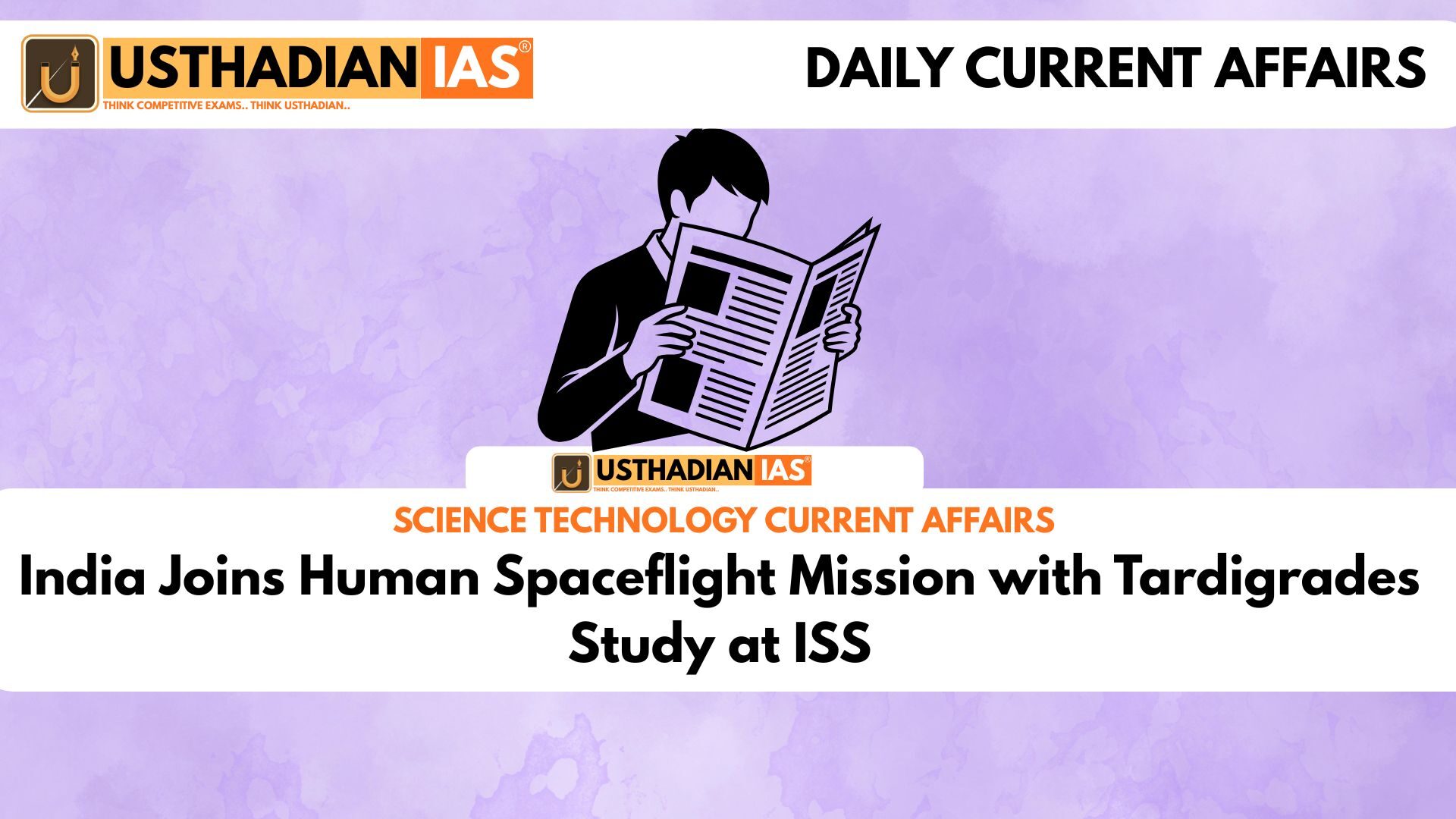India’s First Space Biology Mission with Axiom
India Joins Human Spaceflight Mission with Tardigrades Study at ISS: India is preparing to take a major leap in human space research as it joins Poland and Hungary in a historic spaceflight mission next month. This will be the first government-backed human spaceflight for these nations in over 40 years. The event, known as Axiom Mission 4, will send a four-member crew, including an Indian research component, to the International Space Station (ISS) for two weeks. Among the seven Indian experiments onboard, the Voyager Tardigrades project by ISRO is drawing particular attention due to its relevance for astronaut health and deep-space travel.
What Makes Tardigrades So Special?
Tardigrades, also called “water bears,” are microscopic animals measuring about 0.1 to 0.5 mm in length. These creatures have earned their reputation as the most resilient life forms on Earth. They can survive extreme radiation, high pressure, freezing temperatures, and even the vacuum of outer space. In fact, they’ve been around for over 600 million years, surviving mass extinctions and space exposure. For scientists, these characteristics make them ideal subjects for space biology experiments.
Inside the Voyager Tardigrades Experiment
ISRO’s Voyager Tardigrades experiment will test how these hardy organisms behave in microgravity. Scientists will study how dormant tardigrades “wake up” and even reproduce in space. The eggs laid and hatched aboard the ISS will be compared to those on Earth. Additionally, scientists will observe any genetic changes by analyzing gene expression in space-grown tardigrades. The findings may lead to breakthroughs in astronaut health protection, especially during long-term space missions such as Gaganyaan.
Wider Scope of Indian Experiments in Space
Apart from the tardigrade study, ISRO is also sending six other experiments under Axiom Mission 4. One project looks at human interaction with screens in zero gravity, monitoring astronauts’ eye movement and stress levels. Another aims to test the viability of microalgae as a nutritious food source during space missions. Cyanobacteria will also be observed for their growth patterns, as these photosynthetic microbes could contribute to oxygen generation and life support systems in future spacecraft.
There’s also an experiment focused on muscle regeneration, evaluating how a metabolic supplement might prevent muscle loss in astronauts. Lastly, researchers will study how salad seeds sprout and evolve across generations in space, a key element for sustainable food production during prolonged space exploration.
A Step Toward the Future
India’s involvement in Axiom Mission 4, along with the Voyager Tardigrades study, signals the nation’s growing influence in global space collaboration. These experiments are not just scientific milestones but stepping stones for the Gaganyaan mission, which aims to send Indian astronauts into space. With space biology, microgravity testing, and cross-agency partnerships, India is shaping the future of space health and survival science.
STATIC GK SNAPSHOT
India Joins Human Spaceflight Mission with Tardigrades Study at ISS:
| Parameter | Details |
| Mission Name | Axiom Mission 4 |
| Partner Nations | India, Poland, Hungary, USA |
| Host Platform | International Space Station (ISS) |
| Indian Lead Agency | ISRO |
| Key Experiment | Voyager Tardigrades Project |
| Focus Species | Tardigrades (“water bears”) |
| Importance | Microgravity adaptation, DNA repair, space survival |
| Relevance to India | Supports Gaganyaan, promotes bio-research in space |
| Other ISRO Experiments | Microalgae, cyanobacteria, muscle repair, screen use |
| Launch Date | Expected in May 2025 |








